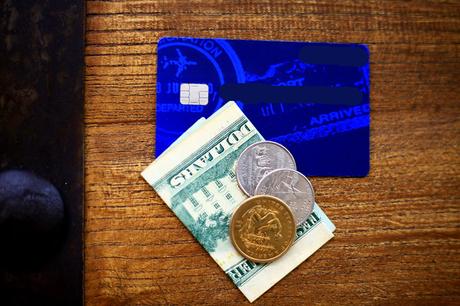 Thank you CreditRepair.com for sponsoring this post. CreditRepair.com’s team understands that a credit score is not just a number; it's a lifestyle.
Thank you CreditRepair.com for sponsoring this post. CreditRepair.com’s team understands that a credit score is not just a number; it's a lifestyle.
You know you are 'old' when you have to start worrying about your credit score versus your grades. Yup, your credit score is how society grades you on how well you are performing in life. I am kidding, but only partially. When I moved to the U.S. is when I realized I needed a 'credit score' in order to qualify for most big financial purchases. Now, if you know me, you know I am an overachiever. If you tell me 100 is the most I can score on a test, I am gonna still try and get that extra credit. (Yes, I am Indian.) But jokes aside, once I educated myself about credit scores and how they are calculated, I became vigilant in maintaining an excellent credit score.
I believe one should know about this from early on so that you can build a good credit score right from the beginning. So let's start with the basics.

- What is a credit score?
A lot of people do not know about the credit scoring system—much less their credit score—until they attempt to buy a home, take out a loan to start a business or make a major purchase. A credit score is usually a three-digit number that lenders use to help them decide whether you get a mortgage, a credit card or some other line of credit, and the interest rate you are charged for this credit. The score is a picture of you as a credit risk to the lender at the time of your application.Scores range from approximately 300 to 850. When it comes to locking in an interest rate, the higher your score, the better the terms of credit you are likely to receive.

- What Helps and Hurts a Credit Score
Payment History details your track record of paying back your debts on time. This encompasses your payments on credit cards, retail accounts, installment loans (such as an automobile or student loans), finance company accounts and mortgages. Public records and reports detailing such items as bankruptcies, foreclosures, suits, liens, judgments, and wage attachments are also considered. A history of prompt payments of at least the minimum amount due helps your score. Late or missed payments hurt your score.Amounts Owed or Credit Utilization reveals how deeply in debt you are and contributes to determining if you can handle what you owe. If you have high outstanding balances or are nearly "maxed out" on your credit cards, your credit score will be negatively affected.
Length of Credit History refers to how long you have had and used credit. The longer your history of responsible credit management, the better your score will be because lenders have a better opportunity to see your repayment pattern. If you have paid on time, every time, then you will look particularly good in this area.
Type of Credit considers the various types of credit you have and whether you use that credit appropriately (e.g, credit cards, retail accounts, installment loans, finance company accounts, and mortgage loans).
New Credit (Inquiries) suggests that you have or are about to take on more debt. Opening many credit accounts in a short amount of time can be riskier, especially for people who do not have a long-established credit history. Each time you apply for a new line of credit, that application counts as an inquiry or a "hard" hit. When you rate shop for a mortgage or a car loan, there may be multiple inquiries. However, because you are looking for only one loan, inquiries of this sort in any 14-day period count as a single hard hit. By contrast, applying for numerous credit cards in a short period of time will count as multiple hard hits and potentially lower your score. "Soft" hits—including your personal request for your credit report, requests from lenders to make you "pre-approved" credit offers and those coming from employers -will not affect your score.

- How CreditRepair.com can help
However, what if you do not have a good credit score to start with, for one reason or the other? That's where CreditRepair.com comes in. Their name is 100% literal. You can call them for a FREE Credit Analysis. They help people repair their credit by removing negative items. CreditRepair.com is a leading provider of credit report repair services in the United States. They are a team of credit professionals who educate and empower individuals to achieve the credit scores they deserve.It is fair to be skeptical and do your due diligence. You can check the reviews and their website. CreditRepair.com’s technology provides members with a personal online dashboard, a credit score tracker and analysis, creditor and bureau interactions, text and email alerts, mobile apps and credit monitoring.
What you need to know is that your credit score is not written in stone and that you are more than a credit score. But your credit won’t fix itself. Get help from CreditRepair.com today with a free consultation and kickstart your credit repair efforts.
Better Credit. Better Life.
PIN THIS

